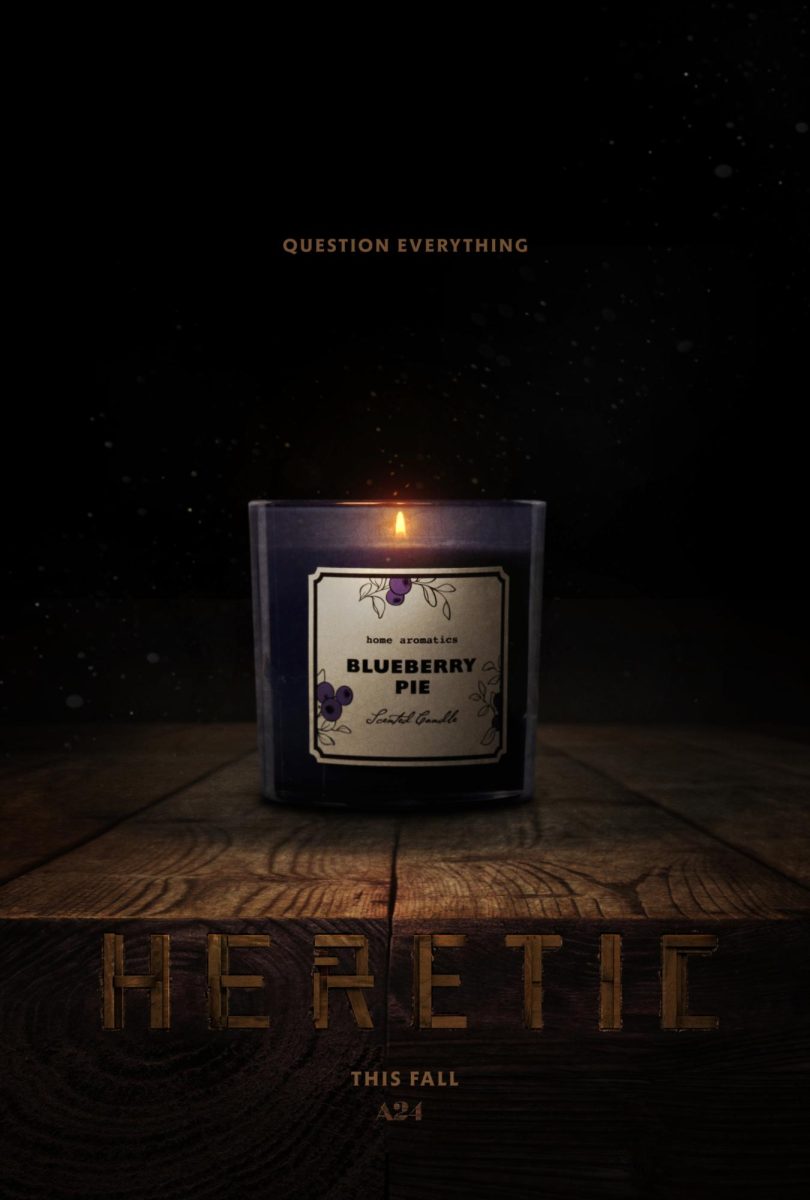Riding on the massive success of their screenplay for “A Quiet Place” writer and director duo Scott Beck and Bryan Woods have had quite a prolific few years. Their last two films — 2023’s “65” and 2019’s “Haunt”— were modest financial successes, despite mixed critical reception. Comfortable on a small budget, it’s no surprise that the duo turned to production and distribution company A24. The highly-acclaimed kings of middlebrow mid-budget cinematic entertainment that pretends it’s anything but.
Coming out amidst a wave of ever-growing popularity of cerebral horror films, “Heretic” has so far proved a critical and commercial success.
Testing Faith
The film’s premise is deceptively simple. Sophie Thatcher and Chloe East play two young missionaries from The Church of Jesus Christ of Latter-day Saints, serving in a small Colorado town. During a rainstorm, they knock on the door of one Mr. Reed (Hugh Grant), a man whose disarming presence quickly gives way to unease as he begins probing the pair with increasingly uncomfortable questions. All is not what it seems, and the Sisters soon find themselves at the mercy of Reed’s manipulations —seemingly with the intent of testing their faith and the concept of religion as we know it.
Essentially a chamber piece, “Heretic” adopts a fairly conservative style, relying on one and two-shots (with the occasional off-kilter frame or pan) and the performances to keep things moving, especially Grant’s. As hollow as Reed’s endless monologues may be, Grant manages to keep the audience on edge whenever he’s on screen (which, thankfully, is most of the runtime). His portrayal of shallow narcissism masquerading as principled religious skepticism gives “Heretic” its strongest moments.
Mind Games
Unfortunately, much of the film’s intrigue ends here. While the first act provides plenty to chew on — particularly for those familiar with missionary life — the film soon begins to lose momentum, with each twist feeling more painfully overdetermined than the last. This is likely intentional. “Heretic” revolves around themes of control and manipulation, with images of game pieces acting as a recurring visual motif. Yet one can’t help but wonder if there’s really enough substance here to justify a two-hour suspense picture.
Some Latter-day Saint audiences may be put off by a film that deals so directly with their faith, especially in light of recent media portrayals. Yet “Heretic” gives but a cursory treatment of Latter-day Saints and their religion. Initial references to Joseph Smith and The Book of Mormon soon give way to Reed’s more generalized rants about religion as a whole, making it clear that “Heretic” isn’t out to critique any particular faith so much as to examine how individuals grapple with belief and doubt. Faith itself is taken as a given here, and while the Sisters come across as in some ways naïve, it’s not because of their religion per se. Instead, the film saves it’s smoke for Reed, with his hypocritical attempts to impose his ideas, which amount to little more than shallow New Atheist talking points, on others. Whether or not one agrees with the arguments Reed presents, the psychological games ultimately lack the human depth needed to sustain viewer interest for any significant length of time.
The dramatic irony of a villain who believes his derivative monologues are profound is not lost on this reviewer. If only that conceit were enough to save “Heretic” from its own mediocrity.



